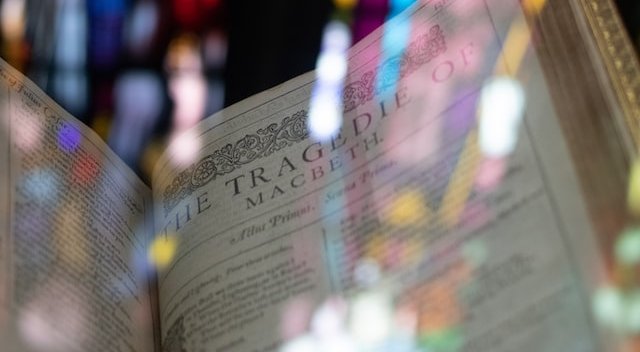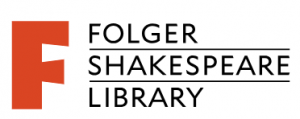FOLGER SHAKESPEARE LIBRARY Virtual Fellowships

Applications open:
October 1, 2022
Applications due:
January 15, 2023, by 11:59 pm (ET)
About Virtual Fellowships
Virtual, or non-residential, research fellowships are available to support both scholarly and artistic projects for a period of one month, with a stipend of $4,000. Virtual fellowships are designed for individuals who cannot, for a variety of reasons, travel or commit to a residential research period at this time, but whose projects will be significantly advanced by the funding of access to primary sources online, dedicated time to work, and the validations of a fellowship award.
By alleviating financial, professional, and personal barriers to fellowship participation, virtual opportunities provide greater access to research fellowships while simultaneously allowing scholars to take full advantage of the increasing multitude of digital resources accessible to them at home. We also recognize that, in addition to working with archival materials, time to think, write, and revise are all equally important aspects of research. As such, our virtual fellowships allow researchers to “buy time,” or use their fellowship funds to offset personal and professional expenses such as caregiving and summer or adjunct teaching releases.
The Folger inaugurated a virtual fellowship opportunity in response to the closure of the library and pandemic-related travel constraints. We aimed to acknowledge a fuller range of stages of work involved in long-form research projects that could benefit from support. We also aimed to create more equitable access to fellowship funding. Since the start of our virtual fellowships program, we have received consistent and enthusiastic feedback from our research community affirming that these virtual opportunities are vital. The Institute will continue to offer virtual fellowships, even as the Folger reopens and resumes funding residential fellowships.
Please note: Due to the COVID-19 pandemic, the Imaging team is working remotely, and no requests for new photography are being accepted at this time. The ongoing renovation of the Folger will affect our ability to complete requests for images requiring new photography over the next few years. Please check our digital image collection to see if what you want has already been digitized or contact reference@folger.edu to speak with our Collections team.
Virtual Fellowships for Scholarly Research
Applicants must make their own best cases for how a one-month virtual fellowship can provide vital support to pursue or advance their research. Here are some examples of scenarios an applicant might propose to use their fellowship funds:
- A researcher requests dedicated time to review and evaluate archival notes and images collected on previous research trips and will fund childcare in order to do so.
- A researcher requests dedicated time to research and write the final chapter of their manuscript without summer teaching obligations.
- A researcher requests time to conduct remote research with digitized materials available through the Folger and other online collections.
- An independent researcher needs to fund access to online databases.
- A researcher plans to create and/or curate digital resources for use in undergraduate classrooms.
- A researcher, working with a Folger digitized collection, requests time to examine these sources in detail, but must supplement adjunct teaching in order to do so.
- A researcher, unable to take up a residential research fellowship because they have small children, requests funds to pay for the digitization of or the reproduction and permission fees for images of rare materials so they might access them from home.
- A researcher with care-giving responsibilities requests time to revise and finalize their manuscript from home.
In all cases, fellowship funds are to support full-time work on a research project. Funds may be used to relieve personal and/or professional constraints to full-time research.
Scholars must hold a terminal degree in their field by the time they begin their virtual fellowship. To evaluate these applications each year, the Fellowships Program assembles an external committee of respected scholars, aiming for disciplinary, methodological, and geographical diversity. Committee membership changes annually. The committee is charged with evaluating applications based on the proposed topic’s impact, its relevance to the field, the originality and sophistication of the scholar’s approach, the feasibility of the scholar’s research objectives, and the proposed use of their research funds. Particular weight is accorded to the project’s impact, relevance, and approach. Furthermore, the Institute is committed to supporting work across fields of study in the early modern humanities that address inequities or marginalized subjects, and that point to richer and more inclusive histories.
Virtual Fellowships for Artistic Research
Virtual fellowships for artistic research are open to artists working in all media whose work would benefit from significant primary research and that is related to the histories, concepts, art, and objects of the early modern world. This includes, but is not limited to, visual artists, writers, dramaturgs, playwrights, performers, filmmakers, and composers. For context, here are some generalized examples from our 2022-23 cohort.
- An artist working with a Folger digitized manuscript requests funding to produce imagery inspired by that manuscript using innovative printing techniques as well as creating related performance art pieces.
- A visual artist requests funding to produce a series of paintings that explore mental illness in Tudor England.
- A filmmaker requests funding to write a script for a miniseries inspired by Shakespeare and his contemporaries.
- A playwright requests funding to research and write a contemporary Latinx interpretation of a play by Shakespeare.
- An artist requests funding to produce performance art that explores the crossroads of scientific fact and speculative fiction in the early modern US.
- An artist requests funding to create a multi-media exhibit that explores Indigenous objectification in the early modern world and its continuation today.
- A writer requests funding to write longform poetry focused on constructs of gender in the early modern period.
While a terminal degree is not required for the Artist Research Fellowship, applicants should describe their training and level of industry-specific experience in their CV. All applicants must apply as individuals, including artists working as collaborators.
Click here for more information on our Artistic Research Fellowships.
Application Instructions
The application portal for virtual fellowships will be available October 1st with applications due by 11:59 pm (ET) January 15th. All applications must be completed and submitted through our online portal. Please note, virtual fellows must take their month-long fellowship between July 1, 2023 and June 30, 2024.
Please be sure to review the Fellowships FAQs page before applying.
To apply for a 2023–2024 Folger Virtual Scholarly or Artistic Research Fellowship, please submit the following:
- 250-word abstract of your project.
- 1,500-word description of your project, placing particular emphasis upon the proposed topic’s importance, its relevance to the field, and the originality and sophistication of your approach. Please be specific about how your fellowship funds will be used to further your research and project.
- Two-page CV.
- Two letters of recommendation. You will identify your recommenders in the online application portal. Your recommenders will be contacted directly via the online portal and will be given guidance on how to upload their letters. Anyone is eligible to act as a recommender: artists, scholars, teachers, colleagues. Letters of recommendation are very helpful to interdisciplinary selection committees as they work to understand how a project fits within its field. Applications may be disadvantaged, but they are not rendered ineligible if they are missing letter(s) of recommendation.
It is helpful to start your online application early. You can revise your application at any point in the process right up to the deadline. You must hit the “submit” button for your application to be complete.
